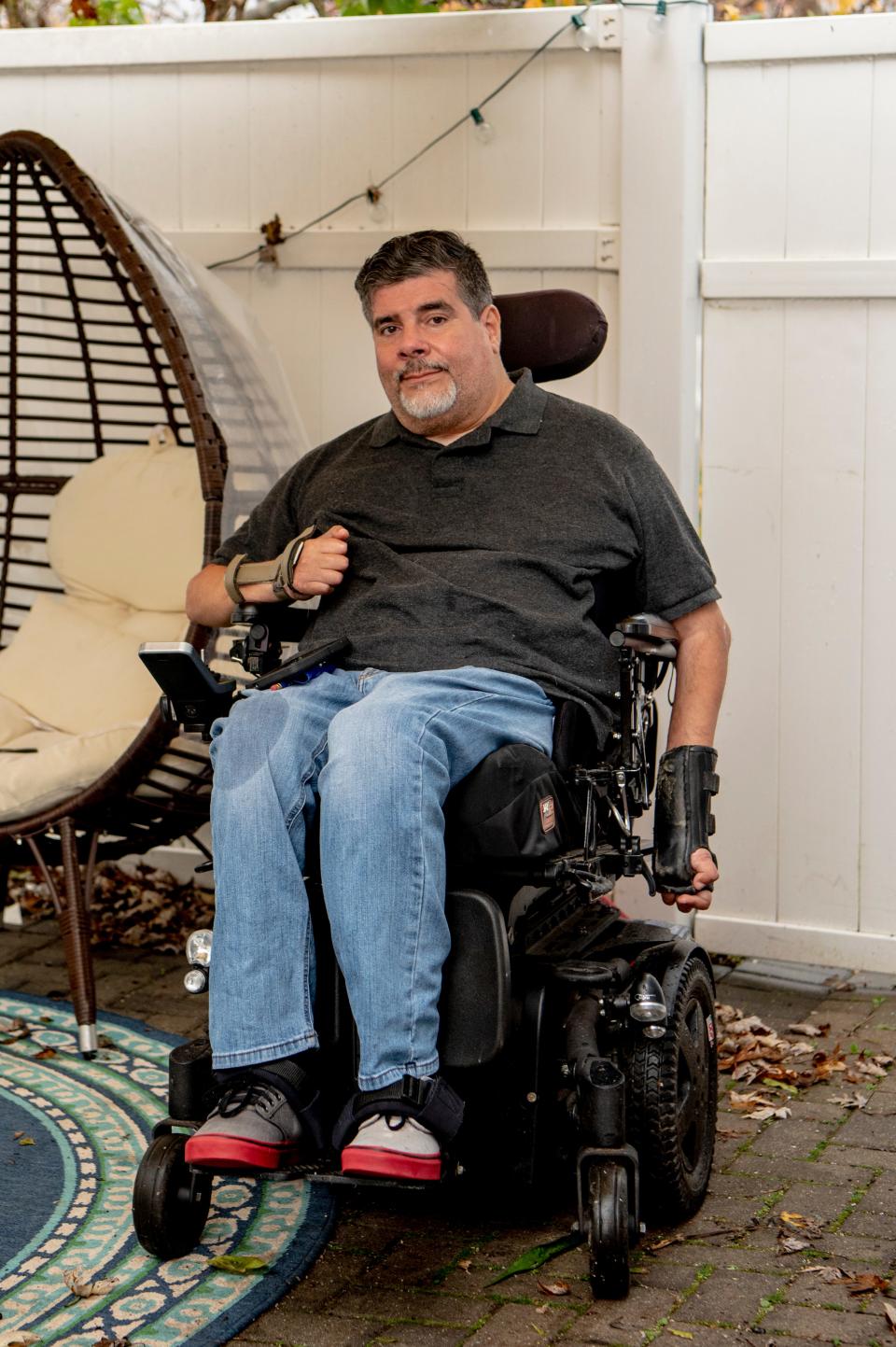NJ disability advocates warn overturning Roe v. Wade could also imperil their rights
- Oops!Something went wrong.Please try again later.
- Oops!Something went wrong.Please try again later.
The Disability Action Committee, a coalition of New Jersey advocates, put the overturning of Roe v. Wade front and center on a Friday conference call, joining groups across the country in wondering what the conservative court will do next.
“If they are willing to take out Roe v. Wade the first chance they get — that is a big-ticket item — this could get interesting,” said committee chair Javier Robles, a Rutgers University professor who directs the school's Center for Disability Sports, Health and Wellness.
In June, the U.S. Supreme Court overturned Roe, finding that “the Constitution makes no reference to abortion, and no such right is implicitly protected by any constitutional provision,” as Justice Samuel Alito wrote in his opinion.
Writing for a 6-3 majority, Alito rejected the idea underpinning the 1973 Roe decision, that the right to an abortion is implied in the 14th Amendment, which says states can’t deprive Americans of their “liberty” without “due process of law.” The conservative court overruled that thinking, letting individual states decide whether to restrict abortion.
It’s a logic that worries many groups that represent marginalized minorities who have only begun to find their footing in society, said disability advocates.

“This decision threatens the true meaning of many values that are proclaimed to be core American values: freedom of choice, self-determination, and independence from government interference in one’s personal affairs,” Maria Town, CEO of the American Association of People with Disabilities, said on the group's website.
Members of the New Jersey committee said Friday that they are considering putting out a similar statement in the days to come.
“What will happen when the conservative court gets an ADA case?” Robles asked. He said he feared that the ruling was indicative of a legal pendulum swinging away from a focus on personal rights, a change from the days when the Americans with Disabilities Act was passed in 1990.
Matawan business owner Sherlock Washington, who is visually impaired, wondered if the court's conservative majority will be more prone to pro-business rulings at the expense of individual liberties.
“When the ADA was put in place, it was to protect those of us who were going for employment or getting access. Now that Roe was overturned, are we going to be taken seriously, or will it be too much of a hardship for the employer to put special things in place for people with disabilities?” Washington said. He worries about expanded use of an ADA clause that says access must be provided unless it would cause “an undue hardship.”
More:In a post-Roe era, the internet could help or hurt women seeking abortions. Here's how.
Column:Supreme Court rulings set off Culture Wars Part 2 - Mike Kelly
Alito, in his ruling, said "nothing in this opinion should be understood to cast doubt on precedents that do not concern abortion." But LGBTQ activists and other groups said the due process argument was key to other major decisions such as the ruling that declared a constitutional right to same-sex marriage. They point with worry to a concurring opinion by Justice Clarence Thomas that said decisions involving contraception and gay rights were “demonstrably erroneous" and that the court has a duty to “correct the error.”
Arlene Romoff, a Hackensack resident and past president of the Hearing Loss Association of New Jersey, said she'd experienced first hand the impact of downplaying individual rights. Romoff, who lost her hearing as an adult and relies on cochlear implants, liked going to the movies. But in the early days of the ADA, theaters successfully fought the requirement to caption movies.
“The movie industry didn’t want them and prevailed. The industry in 1991 said, 'No, we are not putting that in.' That was a case of the industry prevailing over disability,” Romoff said. “And I never went to the movies.”
Robles said the logic for overturning Roe v. Wade — that abortion rights were not explicitly enumerated in the Constitution — was a “slippery slope." He suggested a strategy his group will be considering going forward.
"We should prepare ourselves and meet with legislators and identify people who are supportive of disability rights and laws," he said. "It will be important for us to start building some kind of wall so we have greater protection from the state via legislation in case the Supreme Court does what it did with Roe v. Wade. Then the state can step in."
Gene Myers covers disability and mental health for NorthJersey.com and the USA Today Network. For unlimited access to the most important news from your local community, please subscribe or activate your digital account today.
Email: myers@northjersey.com
Twitter: @myersgene
This article originally appeared on NorthJersey.com: Roe v. Wade could affect NJ disability rights, advocates say

